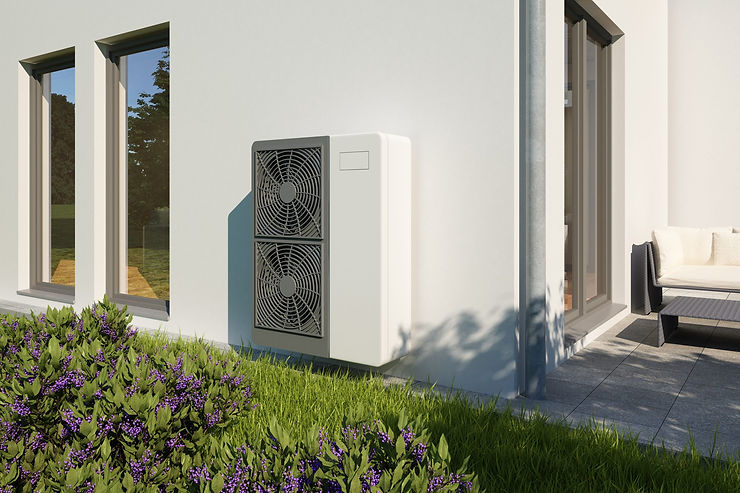
With the rising interest in renewable home heating solutions, ground and air-source heat pumps are becoming popular choices. Here at Elite Renewables Ltd, based in London, we provide expert installation and maintenance services for these systems.
Here, we explore the key differences between ground source heat pumps and air-source heat pumps to help you decide which is best for your home.
How Ground Source Heat Pumps Work
Ground source heat pumps (GSHPs) extract heat from the ground to provide heating and hot water. This is achieved through a network of pipes buried underground, known as a ground loop, which circulates a mixture of water and antifreeze. As this mixture absorbs heat from the ground, it is pumped through a heat exchanger and upgraded to a higher temperature for home heating.
How Air-Source Heat Pumps Work
Air-source heat pumps (ASHPs) extract heat from the outside air. These systems consist of an outdoor unit that absorbs heat and transfers it to an indoor unit via a refrigerant. The heat is then upgraded and distributed throughout the home via radiators, underfloor heating, or hot water systems. ASHPs can operate efficiently even in colder temperatures, making them versatile for various climates.
Installation and Space Requirements
Ground Source Heat Pumps: GSHPs require significant outdoor space for the ground loop installation. This can be either a horizontal trench system or a vertical borehole system, depending on the available land and soil conditions. Installation can be more complex and invasive compared to ASHPs, requiring specialised equipment and expertise.
Air-Source Heat Pumps: ASHPs are easier and quicker to install, needing only a small amount of outdoor space for the unit. This makes them ideal for properties with limited garden space. The installation process is less invasive, and the system can often be retrofitted to existing buildings with minimal disruption.
Efficiency and Performance
Ground Source Heat Pumps: GSHPs are known for their high efficiency and consistent performance throughout the year. The ground temperature remains relatively stable, providing a reliable source of heat even during winter. This stability results in higher efficiency rates compared to ASHPs, translating to lower running costs over time.
Air-Source Heat Pumps: ASHPs have slightly lower efficiency rates, particularly in extremely cold weather when the air temperature drops significantly. However, modern ASHPs are designed to perform well in cold climates, and their efficiency is generally sufficient for most households. They are also typically less expensive to install than GSHPs.
Environmental Impact
Both ground and air source heat pumps are environmentally friendly options for renewable home heating. They significantly reduce carbon emissions compared to traditional fossil fuel systems. Choosing between the two depends on your specific circumstances, such as available space, budget, and heating needs.
Cost Considerations
Ground Source Heat Pumps: While GSHPs have higher upfront installation costs, their long-term efficiency can result in substantial savings on energy bills. They also have a longer lifespan, offering reliable heating for many years.
Air-Source Heat Pumps: ASHPs generally have lower installation costs, making them more accessible for homeowners with a smaller budget. Although they may have higher running costs than GSHPs, they still offer significant energy savings compared to conventional heating systems.
Renewable Home Heating From Elite Renewables Ltd
By understanding the differences between ground and air-source heat pumps and consulting with experts like Elite Renewables, you can make an informed decision that benefits both your home and the environment.
Ready to explore renewable home heating options? Contact Elite Renewables Ltd, your trusted
renewable technology solutions provider in London.

When it comes to AC Repair, air-source heat pumps (ASHPs) and ground-source heat pumps (GSHPs) each have their strengths in HVAC systems. ASHPs effectively draw heat from outdoor air, making them ideal for homes with limited outdoor space. They offer cost-effective heating solutions. In contrast, GSHPs require more outdoor area and specialized installation but provide superior efficiency and year-round performance.